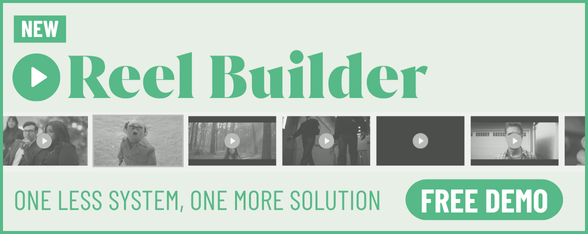
Compass Rose Expands Into Virtual Production with Fantasy Studios Partnership

Above: BTS shot from 'Interview with a Vampire', season two
Compass Rose (CR), a group of award-winning service production companies, is growing with an expansion into virtual production via a partnership with Fantasy Studios, located in Prague. With two versatile sound stages equipped with XR LED screens, content creation and motion capture capabilities, plus an exceptional technical crew, the partnership is a valuable addition to the Compass Rose offering.
“We're always looking for ways to expand our capabilities with tools that make our work better, more creative, and more cost-effective for our clients,” says Pavla Burgetova Callegari, Compass Rose’s founder and executive producer, global.
Amid an uncertain economic climate that’s negatively affecting production, virtual production offers value without curtailing creativity. Pavla says, “Creating virtual environments, like branded storefronts or interiors, can be built once, stored as reusable assets, and brought back for future projects. This kind of flexibility means brands can maintain visual consistency while saving time and money. By combining high-end live action with virtual production, the creative possibilities are virtually endless.”
Finding the right partner for CR’s next move was essential and Pavla says that Fantasy Studios ticked a lot of boxes. “The company is based in Prague, which has long been a leading hub for production with top-tier crews and an outstanding art department that we’re able to tap into through Fantasy and our local production partner, Stillking Films. And Fantasy’s stages are equipped with the latest LED screen technology. They have a top technical team with the capabilities to create content for both 2D and Unreal Engine. Just as importantly, their team’s ethos aligns with Compass Rose’s: we’re both committed to delivering the highest quality service with a strong creative approach,” she explains.
Above: Fantasy Studios' Virtual Production reel
Lukas Skalnik, Fantasy Studios’ managing director, sees the partnership as “a strategically smart move,” adding, “Clients often travel halfway around the world to capture specific locations. We offer the ability to shoot in digital environments that can either complement or replace real ones.”
He’s clear that “digital and physical locations are not on the same level – each has its own value. But it’s important to acknowledge that some locations simply can’t be filmed for logistical, budgetary, seasonal, or safety reasons. That’s where we come in: offering a flexible, high-quality solution that expands what’s possible.”
The utility and versatility of virtual production can be seen in projects like ‘Hallow Road’, starring Rosamund Pike and Matthew Rhys, shot at Fantasy Studios on LED screens. “As the story unfolds mostly inside a moving car, LED volumes provided the perfect solution – offering full control over lighting, reflections, and environment. The filmmakers aimed to capture the journey in a single continuous take, making precise timing and seamless coordination between visuals and performance absolutely essential,” Lukas explains.
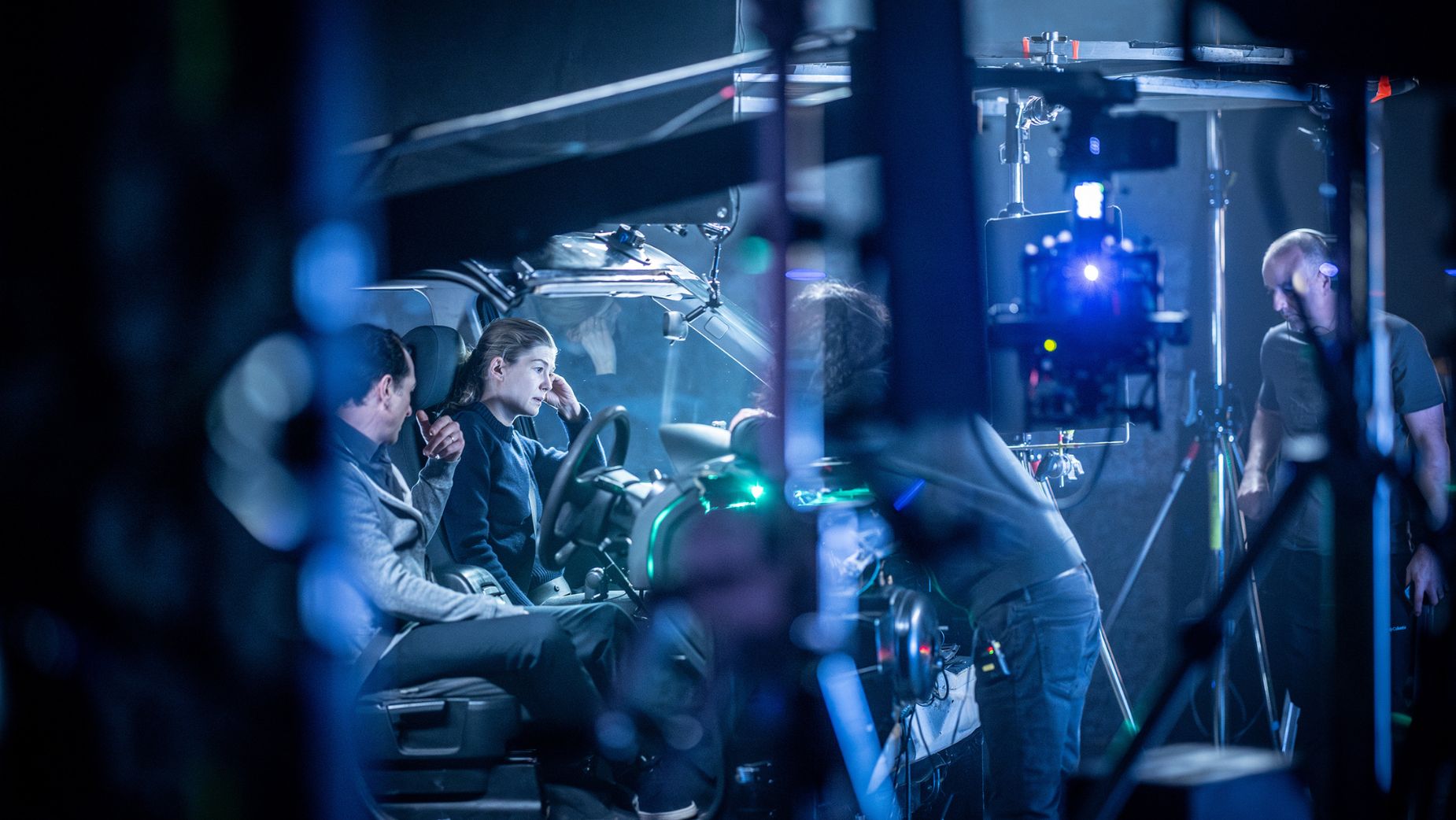
Above: BTS shot from 'Hallow Road'
For the motorcycle sequences in season two of ‘Interview with the Vampire’, Fantasy Studios utilised LED stage to deliver “precise background synchronisation, controlled lighting, and real-time camera tracking, allowing for dynamic movement and seamless integration of the virtual environment, all while keeping the actors and crew safe,” adds Lukas.
Virtual production is, in Lukas’ experience, a way to do things that were previously not possible, both from a creative and practical standpoint. Pavla points to another example. “When we shoot with celebrities, their schedules rarely allow for travel between multiple locations. It's not realistic to shoot a big stage scene in Prague and then fly to another country for a tropical beach scene. With virtual production, we can shoot the majority of the project on stages in Prague and create the beach scene virtually, saving time and keeping the production seamless.”
Virtual production’s applications go far beyond the fantasy and sci-fi genres or visuals typically handled in post production. For Lukas, “Virtual production is fundamentally about production efficiency. It can partially or fully replace real-location filming when it makes creative or economic sense. If a project requires multiple environments within a short timeframe, or demands full control over weather, lighting conditions, or seasons, VP becomes the ideal solution.”
Driving scenes are a common use case for VP but that’s only the beginning. “We also work on projects that require controlled weather conditions (like snowy plains shot in summer or sunny beaches in winter), hard-to-access or expensive locations, and even imaginary environments that would otherwise need to be entirely built in studio or in post production. Virtual production also enhances on-set safety and enables technically complex camera movements, giving directors and DOPs greater creative freedom, without compromise,” he adds.
Technical capabilities
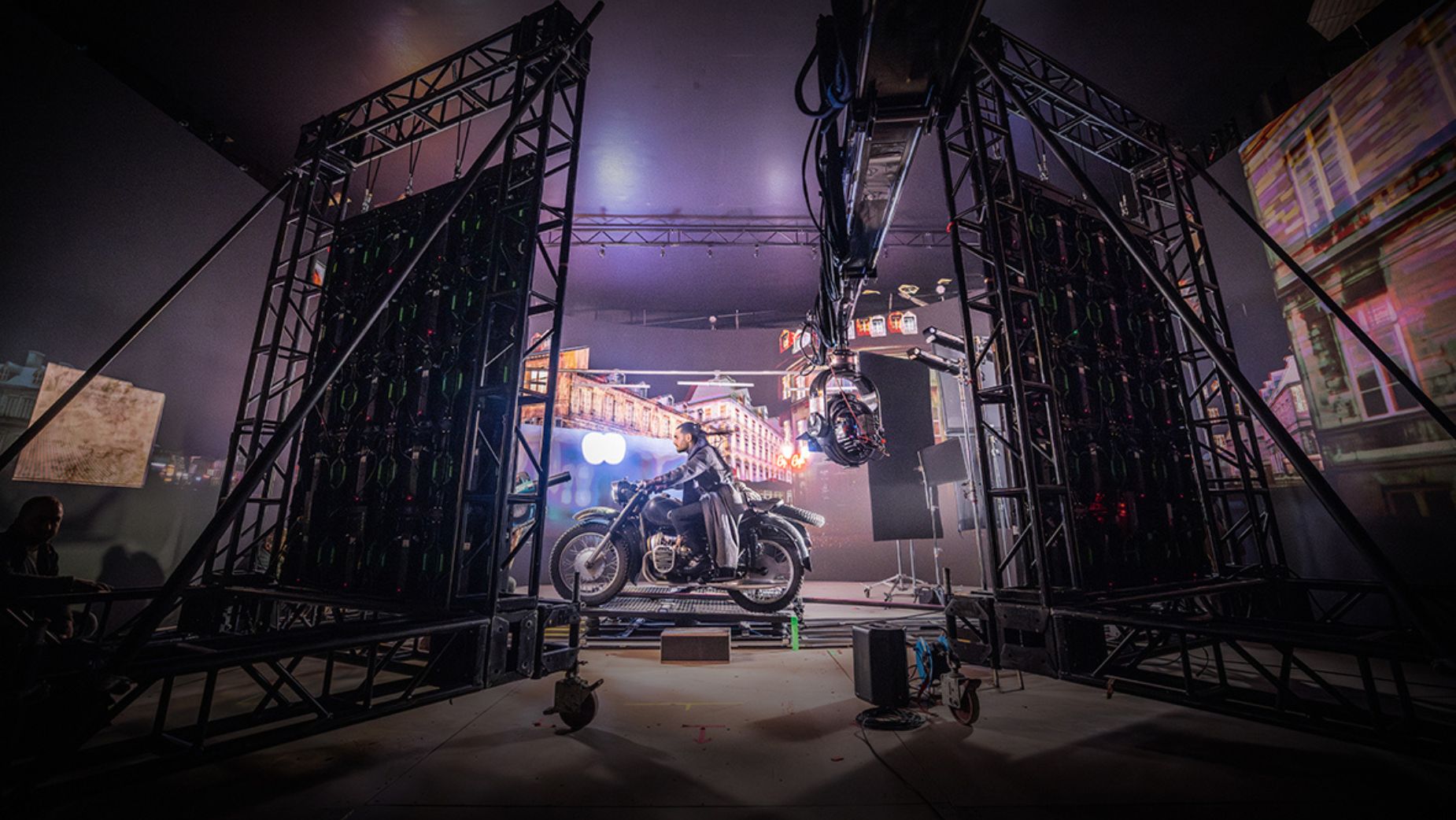
Above: BTS shot from 'Interview with a Vampire', season two
What sets Fantasy Studios apart from other virtual production facilities is a parallel workflow the team developed in house. “The LED wall is only part of the story. It’s a powerful tool that allows us to seamlessly integrate real sets and actors into digital environments, directly in-camera. However, our innovation goes further,” says Lukas. “We’ve developed a parallel workflow that doesn’t require LED at all – fully digital, real-time motion capture production. This is particularly valuable for animation. Instead of traditional keyframe animation, we shoot actors via Mocap in real-time, directly into digital sets.”
Combining both approaches – tracking real and virtual elements together at once – places a live-action actor and a Mocap character into the same scene on the LED stage. “The result is a live composite: camera-tracked footage with a real actor and a real-time rendered 3D character. This gives directors, DOPs, and actors full creative control on set, with immediate visual feedback – a major shift from the traditional post-heavy pipelines. That’s what sets us apart: a hybrid, flexible approach that adapts to the needs of live-action, animation, or both – all powered by real-time technologies,” he explains.
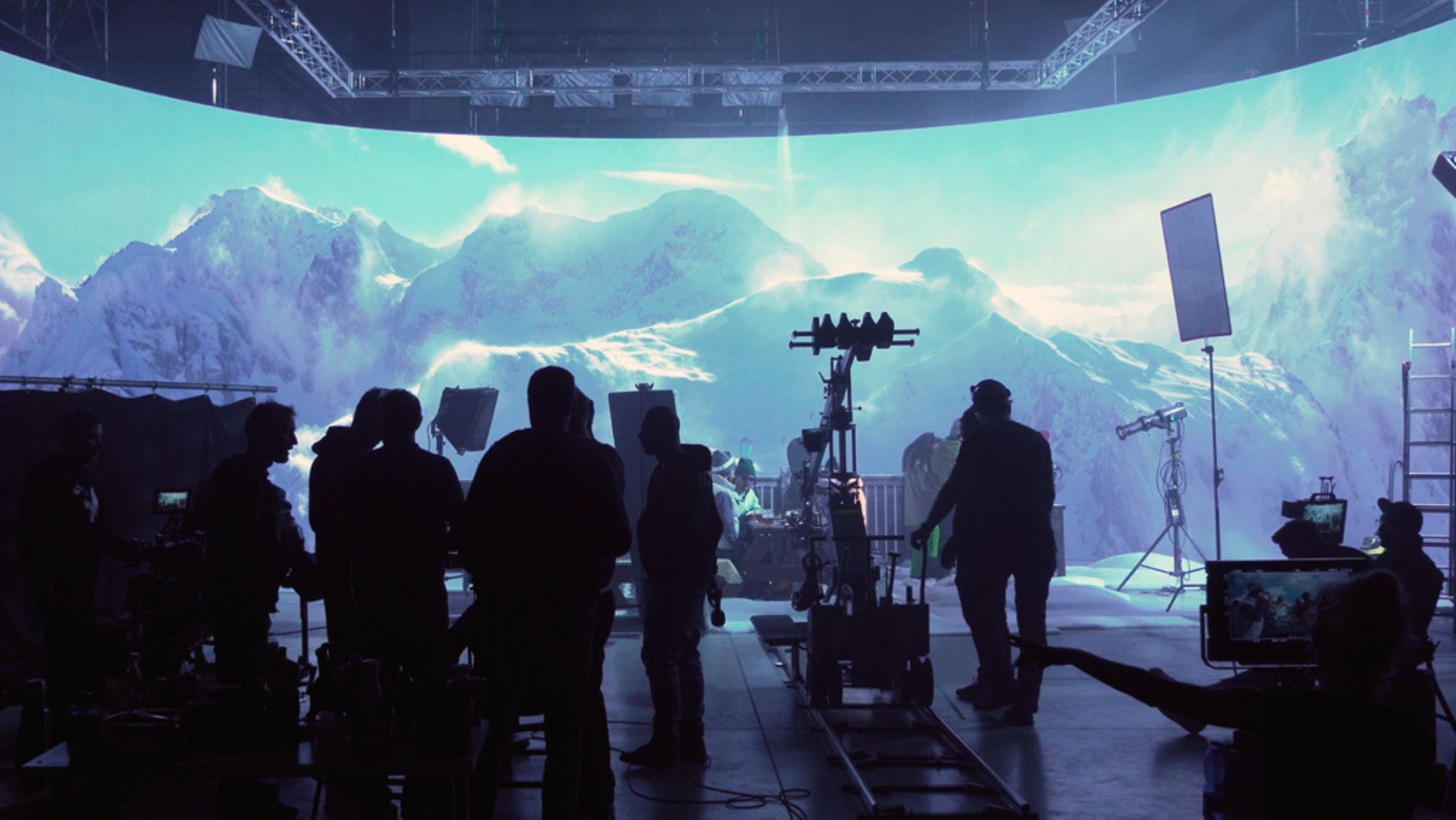
Above: Fantasy Studios
The Fantasy Studios team uses a suite of core technologies and workflows in its virtual production pipeline to seamlessly connect digital environments with live-action footage. All on set, directly in front of the camera. Unreal Engine and Assimilate to create complex 3D environments in real time. “Thanks to camera tracking systems, the digital content is synchronised with the physical camera’s movement. This creates realistic parallax and perspective shifts, making the virtual background behave just like a real-world location,” says Lukas.
To get the most out of virtual production, involving experts as early as possible is the best move. “The earlier we're brought into the process, the more value we can offer – creatively, technically, and economically. We frequently provide early-stage consultation at no cost, helping productions assess whether VP is the right approach. In fact, we’re not afraid to advise against virtual production if it turns out to be counterproductive in terms of cost or creative goals,” Lukas says.
He adds, “At Fantasy Studios, we collaborate closely with directors, DOPs, production designers, and VFX teams from the earliest phases. This allows us to help shape the creative vision while also defining key technical aspects – like scene blocking, camera movement, environment design, and LED screen layout – in a way that fully leverages what VP can offer. We don’t want to just send a budget until we fully understand what the creative team wants – and ensure they understand what’s possible within the budget. This partnership mindset is key to making virtual production work effectively.”
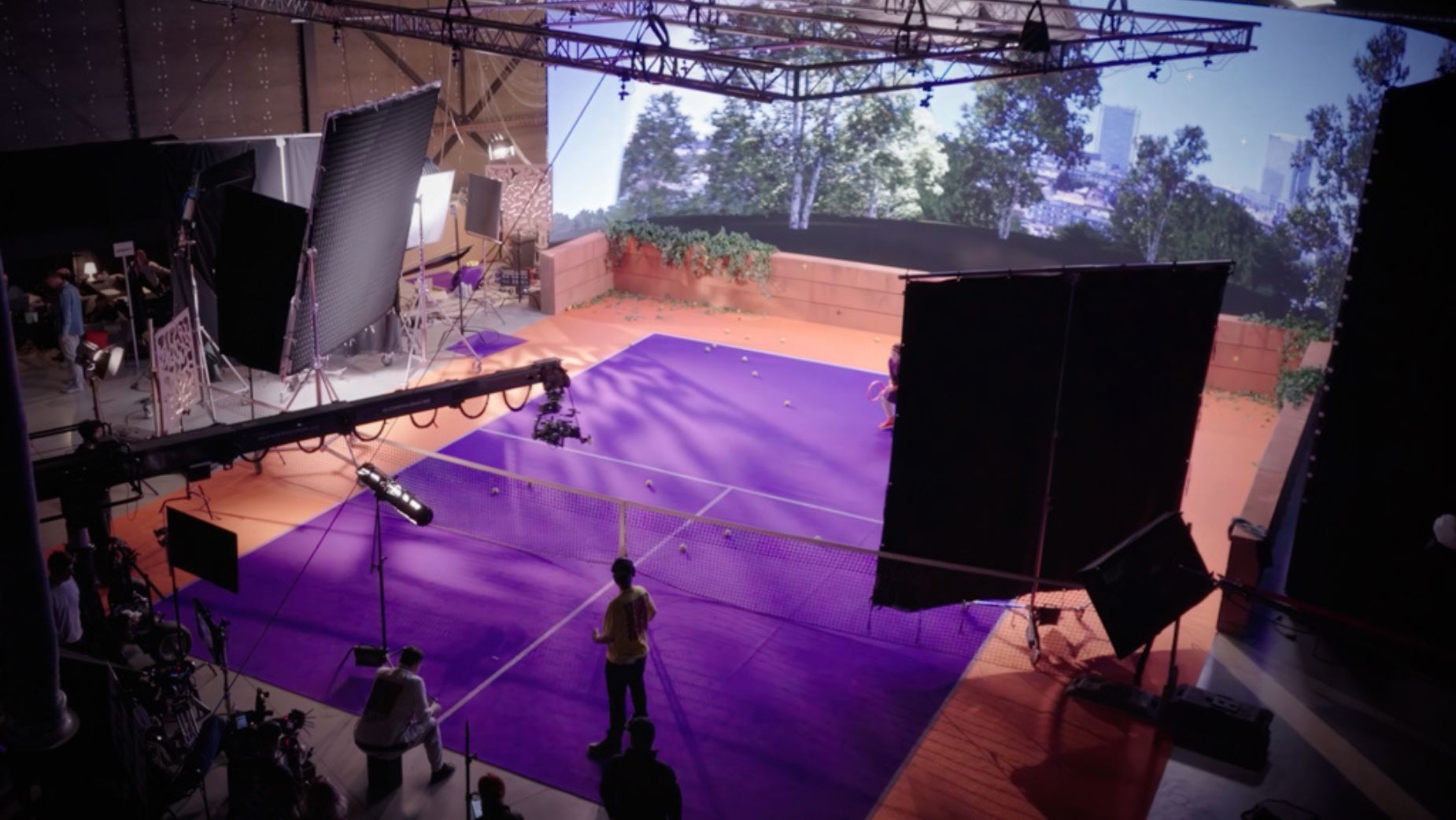
Above: Fantasy Studios
Virtual production has moved from a filmic novelty to necessity, and Pavla and Lukas can both see that the future for production is hybrid. “We’re heading toward workflows where physical and digital elements blend seamlessly – powered by real-time rendering and increasingly advanced AI tools. Production speed and photorealism will reach new heights. In-camera VFX, dynamic lighting, and real-time environments will continue to close the gap between location shoots and virtual sets, all while offering directors and DOPs full creative control,” Lukas explains.
By partnering with Fantasy Studios and adding its extensive capabilities and expertise to its umbrella, Compass Rose is expanding the creative services and possibilities it always aims to give clients. Whether the locations called for are real or virtual, CR has clients’ needs covered.
Compass Rose’s group of service production companies consists of Stillking Films Prague and Cape Town, Icon Romania, Bulgaria, Tuna+Icon Serbia, Entity Films Slovenia and Croatia, Spectrum Mexico and 24/7 Spain, Portugal, Chile and Argentina.






